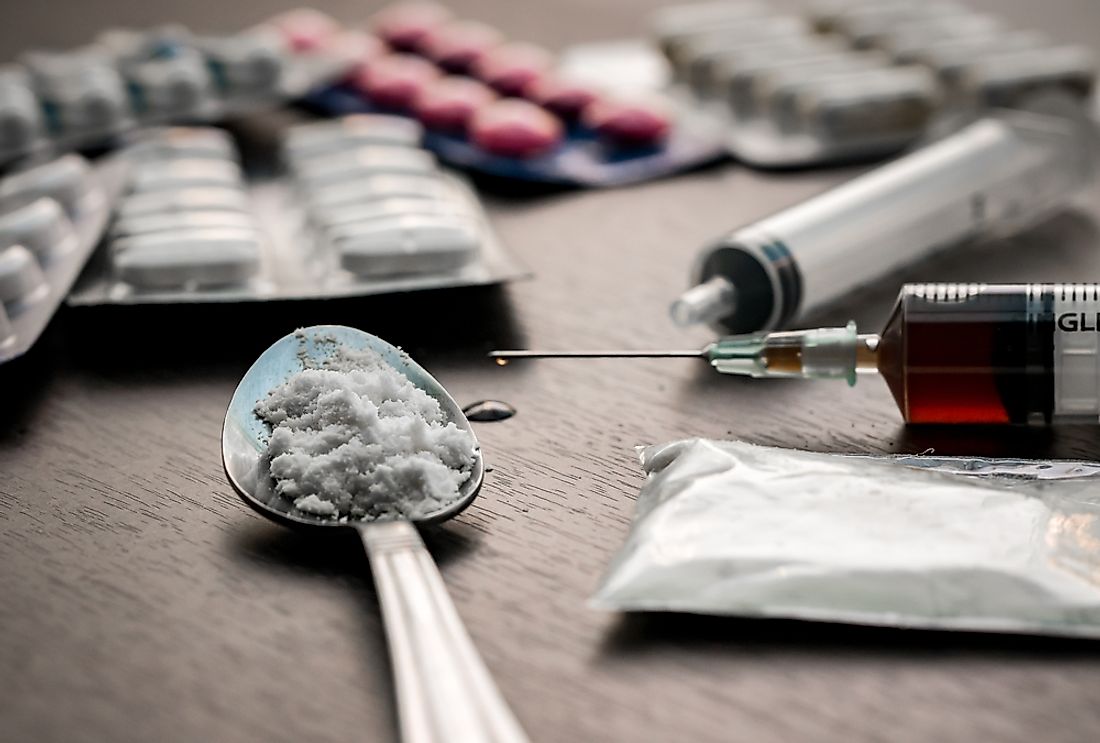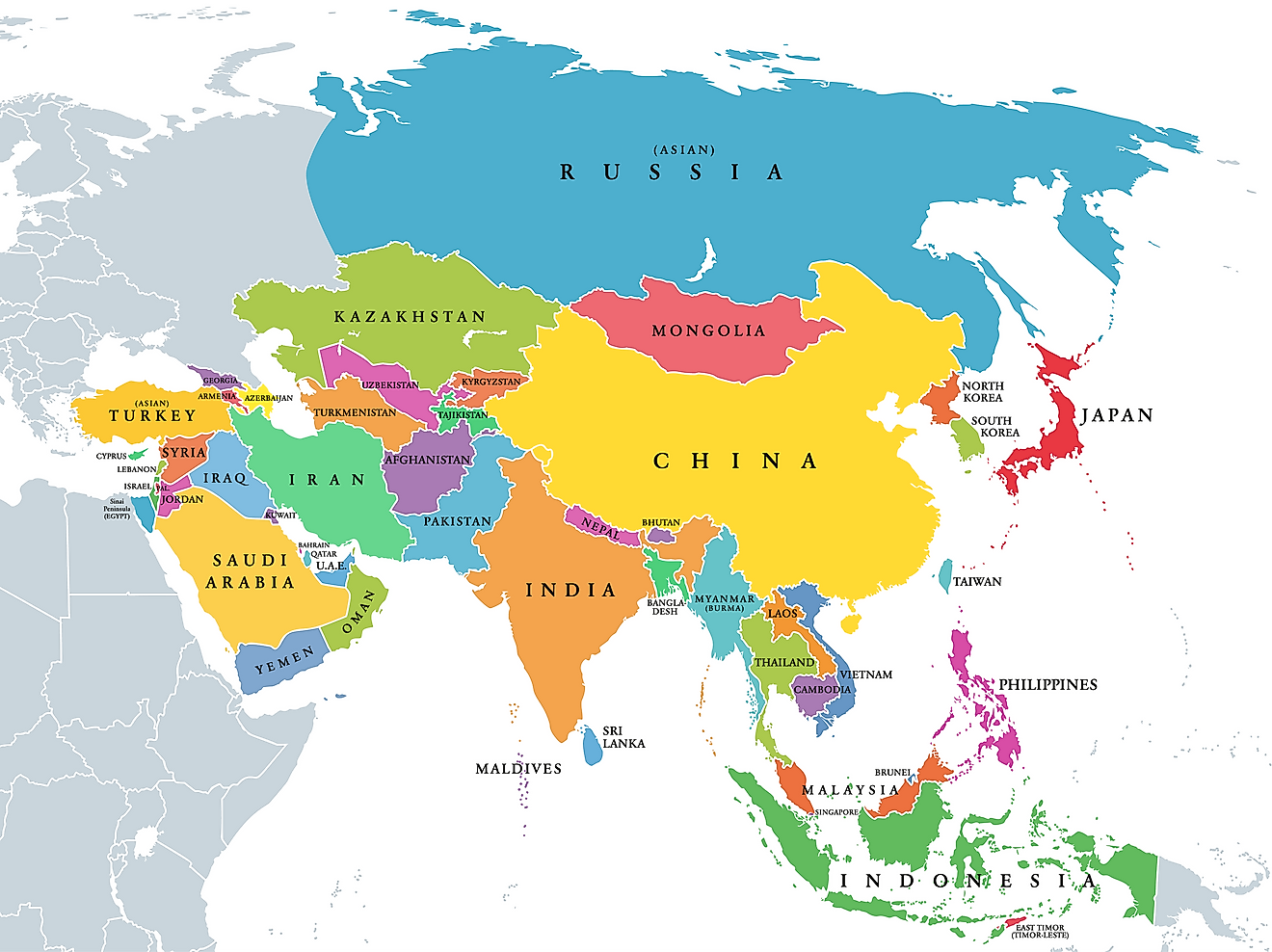The Most Addictive Drugs In The World

Drug addiction can be defined as a relapse of the brain that is brought on by compulsive and frequent use of drugs despite the harmful side effects. Addiction is a brain disease because drugs change the structure and functioning of the brain which may also lead to negative behaviors if drugs are abused. Some individuals depend on specific drugs for the functioning of certain parts of their body and may feel they are not able to function without taking drugs. Harmful drugs are regulated based on their effects and risk. The method and process of classification are neither specified nor transparent thus undermining their accuracy and health education message. Some of the most addictive drugs are outlined below.
Common Addictive Drugs
Heroin
Heroin is an opiate commonly used as a recreational drug because of its euphoric effect. It is occasionally used to relieve pain. It is often injected into the body through the veins but can also be smoked, snorted, and inhaled. Heroin is one of the most addictive drugs in the world - about 25% of those who use it become physically dependent. Tolerance to the drug is developed faster and more doses are required to achieve the same effect. Common side effects include respiratory issues, depression, decreased kidney function, abscesses, and contamination. The WHO estimates that 3.8 to 4.2% of the population of Canada, the US, and Mexico use opioids half of which with heroin. The use of heroin is especially rampant in Vermont, West Virginia, Baltimore, and New Jersey.
Cocaine
Cocaine is a powerful stimulant drug that is obtained from leaves of a cocoa plant usually found in South America. It is commonly used as a recreational drug and is generally snorted, inhaled, or injected into the veins. Health care providers use cocaine as local anesthesia for some surgeries. It is an illegal drug in most countries where its sale and use may lead to prosecution. Dependence on the drug occurs after a short period of use. Cocaine has several side effects including loss of contact with reality, excitement, and agitation. Its use also exposes one to the risk of stroke, lung problems, blood infection, and cardiac arrest. Cocaine is the most illegally used drug in the world with 14 million to 20 million people using the drug each year.
Nicotine
Nicotine is a stimulant known as Parasympathomimetic and is found in the nightshade family of plants. It is made up of about 0.6 to 3% of dry weight tobacco. Nicotine is often used for recreational purposes because of its stimulant effect. Common nicotine products include cigars, snuff, snus, and cigarettes. Nicotine is highly addictive because of its stimulant effect which leads to physical dependence and tolerance. The long-term effects of nicotine are not clear because it is consumed via the tobacco product. The general medical position is that nicotine poses few health risks while its connection to cancer is still being studied. It exposes an unborn baby to type 2 diabetes and obesity later in life. Nicotine is consumed in almost all countries of the world across all age groups depending on social settings.
Treatment of Drug Addiction
Medicine and behavioral therapies are two common treatments used for drug addiction. Methadone and Buprenorphine can be used for heroin addictions and Modanifi can be used for the treatment of nicotine addiction. Medicine helps to reduce cravings and withdrawal symptoms in a drug user. Behavioral therapies include contingency measures and cognitive-behavioral therapy. Contingency measures include motivational incentives such as rewarding drug addicts for positive behaviors such as staying away from drugs. Cognitive-behavioral therapies aim at reducing triggers and stress that causes one to take the drugs.
Most Addictive Drugs In The World
| Rank | Drug | Pharmacological Classification |
|---|---|---|
| 1 | Heroin | Opiate |
| 2 | Cocaine | Stimulant; Triple Reuptake Inhibitor |
| 3 | Nicotine | Parasympathomimetic Stimulant |
| 4 | Methadone | Opiate |
| 5 | Barbiturates | Central Nervous System Depressant |
| 6 | Alcohol | Depressant |
| 7 | Benzodiazepine | Psychoactive Agent |
| 8 | Amphetamines | Substituted Derivatives of Amphetamine |
| 9 | Buprenorphine | Semi-synthetic Opioid |
| 10 | Ketamine | Hallucinogen |











